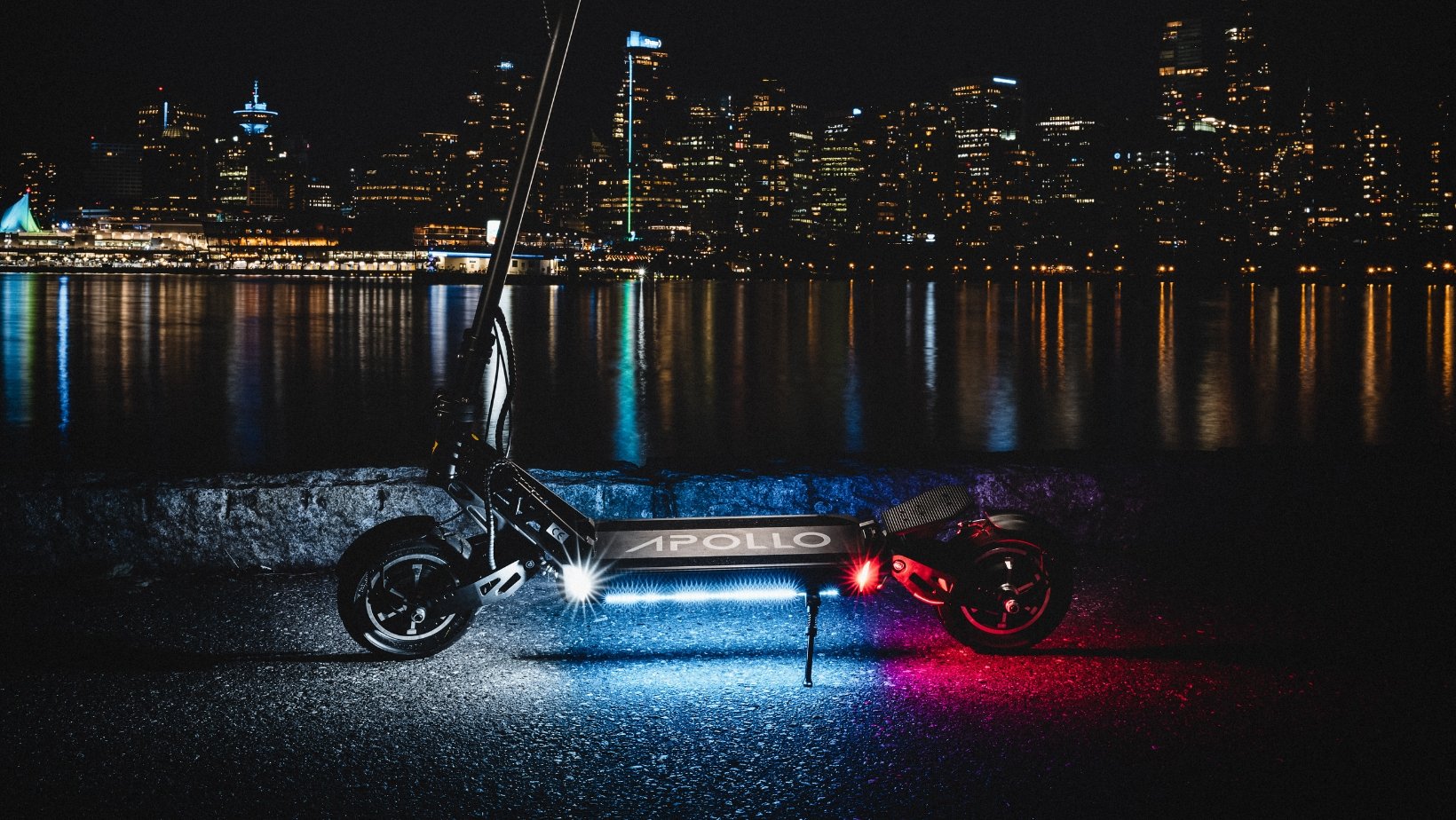Electric scooters can have negative impacts on the environment, traffic, and safety due to their use of electricity, potential for causing congestion, and lack of regulation leading to accidents. In recent years, the increasing popularity of electric scooters has raised concerns about their environmental impact and their effects on traffic and public safety.
As a result, many cities have grappled with the challenges posed by these vehicles, striving to strike a balance between innovation and sustainability. To better understand the implications of electric scooters, it is essential to examine their influence on the environment, traffic patterns, and public safety.
By evaluating the various aspects of electric scooter use, policymakers, urban planners, and citizens can work towards developing sustainable solutions that minimize negative impacts while harnessing the benefits of this burgeoning mode of transportation.

Credit: www.capradio.org
Facts Versus Fiction
Emerging Electric Scooter Industry Environmental Impacts
With the rising popularity of electric scooters, concerns about their potential environmental impact have become a topic of debate. While some argue that electric scooters are a green alternative to traditional transportation, others question their overall sustainability.
Life-cycle Assessments And Carbon Footprint Myths
One common misconception surrounding electric scooters is that they have a minimal environmental impact. However, life-cycle assessments reveal a more complex picture. While electric scooters produce zero emissions during operation, their environmental footprint extends to their manufacture, distribution, and end-of-life disposal.
Battery Production And Disposal Concerns
The production and disposal of electric scooter batteries present significant environmental concerns. The extraction of raw materials, manufacturing processes, and subsequent disposal of lithium-ion batteries contribute to environmental degradation. These concerns call for a closer examination of the overall environmental impact of electric scooters.
Traffic Flow And Infrastructure
Effects On Urban Traffic Congestion
Electric scooters have a mixed impact on urban traffic congestion. While they offer a convenient and eco-friendly mode of transport for short distances, the sudden increase in scooter usage can add to the overall congestion in urban areas. The emergence of electric scooters as a popular mode of transportation has led to concerns about their impact on traffic flow.
Electric Scooters As Last-mile Transportation Solutions
Electric scooters are often touted as last-mile transportation solutions, providing a practical means of bridging the gap between public transit and people’s final destinations. By offering a cost-effective and efficient way to cover short distances, electric scooters can potentially reduce reliance on private cars and alleviate traffic in urban areas.
Integrating Scooters Into Existing Transportation Ecosystems
Integrating electric scooters into existing transportation ecosystems requires careful planning to ensure they contribute to efficient traffic flow. Infrastructure such as dedicated lanes and parking areas can help facilitate the safe and orderly use of electric scooters, reducing potential conflicts with other road users. Collaborating with city planners and transportation authorities, scooter companies can play a vital role in integrating these vehicles into the urban landscape.
Debunking Safety Myths
Comparison Of Electric Scooter Accidents With Other Modes
When it comes to debunking safety myths surrounding electric scooters, it’s important to consider how their accident rates compare to other modes of transportation. Contrary to popular belief, recent studies have shown that electric scooters have a lower accident rate per mile traveled compared to bicycles and cars. This dispels the myth that electric scooters are inherently unsafe. In fact, the compact size and lower speeds of electric scooters often result in less severe accidents.
Safety Innovations In Electric Scooter Technology
Moreover, electric scooter manufacturers are continually investing in safety innovations, such as improved braking systems, enhanced stability features, and integrated lights for better visibility. These advancements not only enhance the safety of riders but also contribute to overall road safety. With the integration of smart technology, electric scooters can now detect potential hazards and alert the rider, mitigating the risk of accidents.
Public Education And Awareness Strategies
Additionally, public education and awareness strategies play a crucial role in ensuring the safe usage of electric scooters. Through targeted campaigns and initiatives, riders are informed about proper safety gear, responsible riding behavior, and traffic regulations specific to electric scooters. Enhancing public awareness fosters a culture of safety, minimizing potential risks associated with electric scooter usage.
Electric Scooters And Climate Goals
Electric scooters have become a popular mode of transportation in urban areas, offering a convenient and eco-friendly alternative to traditional vehicles. When considering the impact of electric scooters on climate goals, it’s essential to assess their contribution to reducing urban pollution, alignment with renewable energy advancements, and their role in sustainable city planning and green initiatives.
Contribution To Reducing Urban Pollution
Electric scooters play a significant role in reducing urban pollution by minimizing the emission of greenhouse gases and harmful pollutants. By utilizing electric power rather than fossil fuels, these scooters help to mitigate air pollution, especially in densely populated city centers where air quality is a concern.
Alignment With Renewable Energy Advancements
Embracing electric scooters aligns with the advancements in renewable energy technologies. Integrating scooters with renewable energy sources such as solar or wind power further reduces their environmental impact, contributing to the overall transition towards a sustainable energy ecosystem.
Role In Sustainable City Planning And Green Initiatives
Electric scooters play a crucial role in sustainable city planning and green initiatives. By promoting micro-mobility and reducing reliance on cars, scooters contribute to creating more pedestrian-friendly urban environments. Additionally, the incorporation of these scooters into city transportation plans encourages the adoption of green initiatives focused on reducing carbon emissions and promoting eco-friendly modes of travel.
Evolving Policies And Better Practices
As electric scooters continue to gain popularity as an eco-friendly and convenient mode of transportation, it’s crucial to examine the evolving policies and better practices surrounding their integration into urban environments. From regulatory frameworks fostering eco-friendly transport to global case studies of electric scooter integration, and anticipated advancements in scooter efficiency and design, this section delves into the progressive changes shaping the landscape of electric scooter usage.
Regulatory Frameworks Fostering Eco-friendly Transport
The implementation of regulatory frameworks plays a pivotal role in promoting the use of electric scooters as a sustainable mode of urban transportation. Cities around the world are recognizing the need to regulate electric scooter use to ensure safety, reduce traffic congestion, and minimize environmental impact. Innovative policies such as dedicated scooter lanes, speed restrictions, and strict parking regulations are being introduced to integrate electric scooters into existing transport infrastructure seamlessly.
Global Case Studies Of Electric Scooter Integration
Examining global case studies provides insights into the practical implications of electric scooter integration. From cities in Europe embracing shared electric scooter programs to densely populated urban centers in Asia leveraging electric scooters to alleviate traffic congestion, these case studies offer valuable lessons for fostering sustainable transportation solutions. The successful integration of electric scooters in cities like Paris, Barcelona, and Taipei illustrates the potential for widespread adoption when supported by effective regulations.
Regions such as Helsinki and Tel Aviv are witnessing the positive impact of electric scooters on reducing reliance on traditional vehicles, promoting last-mile connectivity, and contributing to a cleaner urban environment. These case studies echo the potential for electric scooters to revolutionize urban mobility when aligned with well-crafted policies and infrastructure.
Anticipated Advancements In Scooter Efficiency And Design
Future advancements in electric scooter technology are poised to enhance their efficiency, safety, and environmental impact. With a growing emphasis on sustainable materials and energy-efficient components, manufacturers are striving to develop lightweight and durable scooters that minimize resource consumption and emissions. Innovations in battery technology and power management systems are anticipated to extend the range and lifespan of electric scooters, further promoting their viability as a sustainable transportation option.
Moreover, the integration of smart features such as advanced braking systems, real-time navigation, and connectivity with public transport networks is anticipated to enhance the safety and usability of electric scooters. These advancements will not only mitigate potential safety concerns but also encourage broader acceptance and utilization of electric scooters as a practical and eco-friendly mode of transportation.
Frequently Asked Questions For Are Electric Scooters Bad For The Environment, Traffic And Safety
Are Electric Scooters Environmentally Friendly?
Electric scooters are eco-friendly as they produce zero emissions. By reducing the reliance on cars, they help decrease air pollution and combat climate change. However, the impact of their production and battery disposal should also be considered for a comprehensive view of their environmental impact.
Do Electric Scooters Contribute To Traffic Congestion?
Electric scooters can actually help reduce traffic congestion. By offering a convenient alternative to cars, they help decrease the number of vehicles on the road, leading to smoother traffic flow in urban areas. Their small size also allows them to navigate through traffic more effectively.
Are Electric Scooters Safe To Ride In Busy Areas?
The safety of electric scooters depends on various factors such as rider behavior and adherence to traffic rules. When used responsibly and equipped with safety gear, electric scooters can be a safe mode of transportation. However, accidents can occur if proper precautions are not taken, highlighting the need for careful usage.
Conclusion
In light of these factors, it is clear that electric scooters have both positive and negative impacts. While they are eco-friendly and reduce traffic congestion, safety concerns and environmental implications should not be overlooked. Striking a balance between regulation and innovation is crucial for a sustainable and responsible implementation of electric scooters in urban environments.

